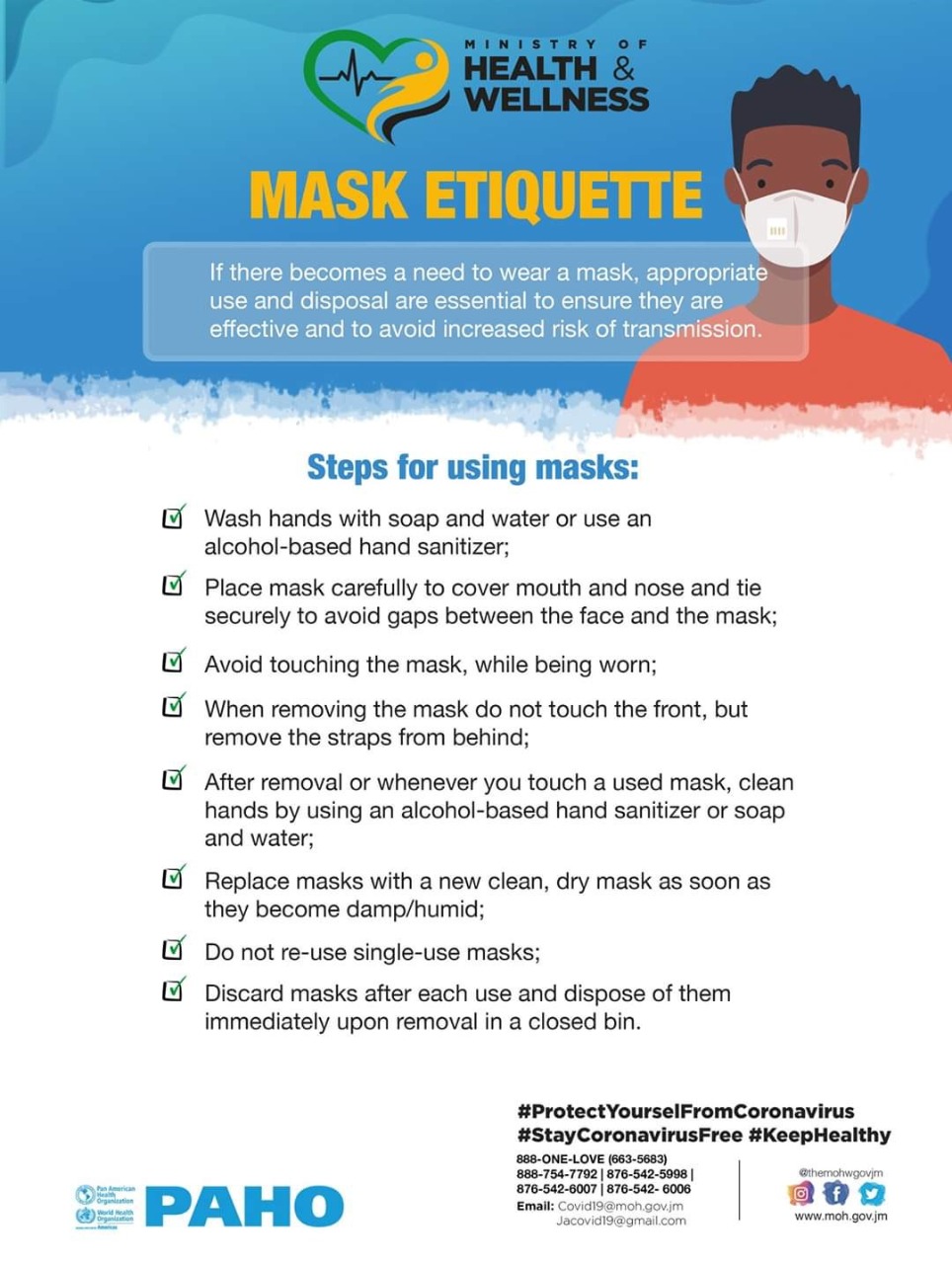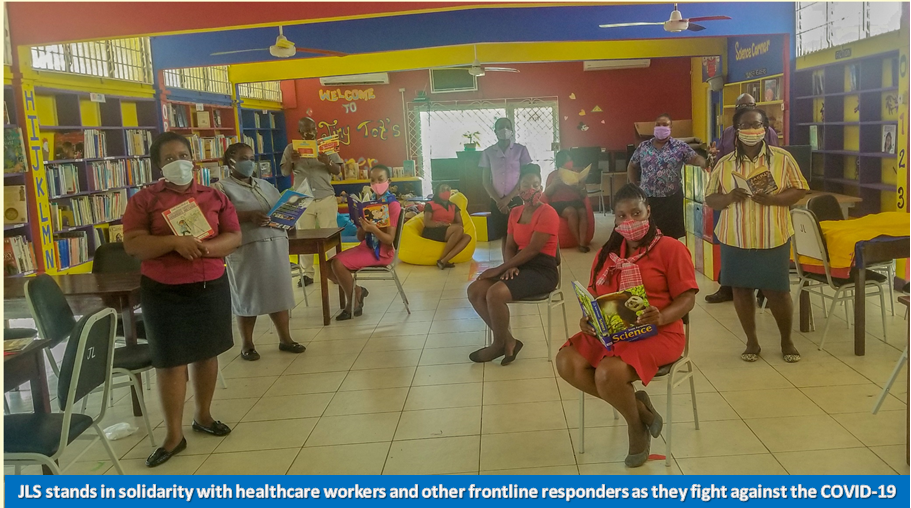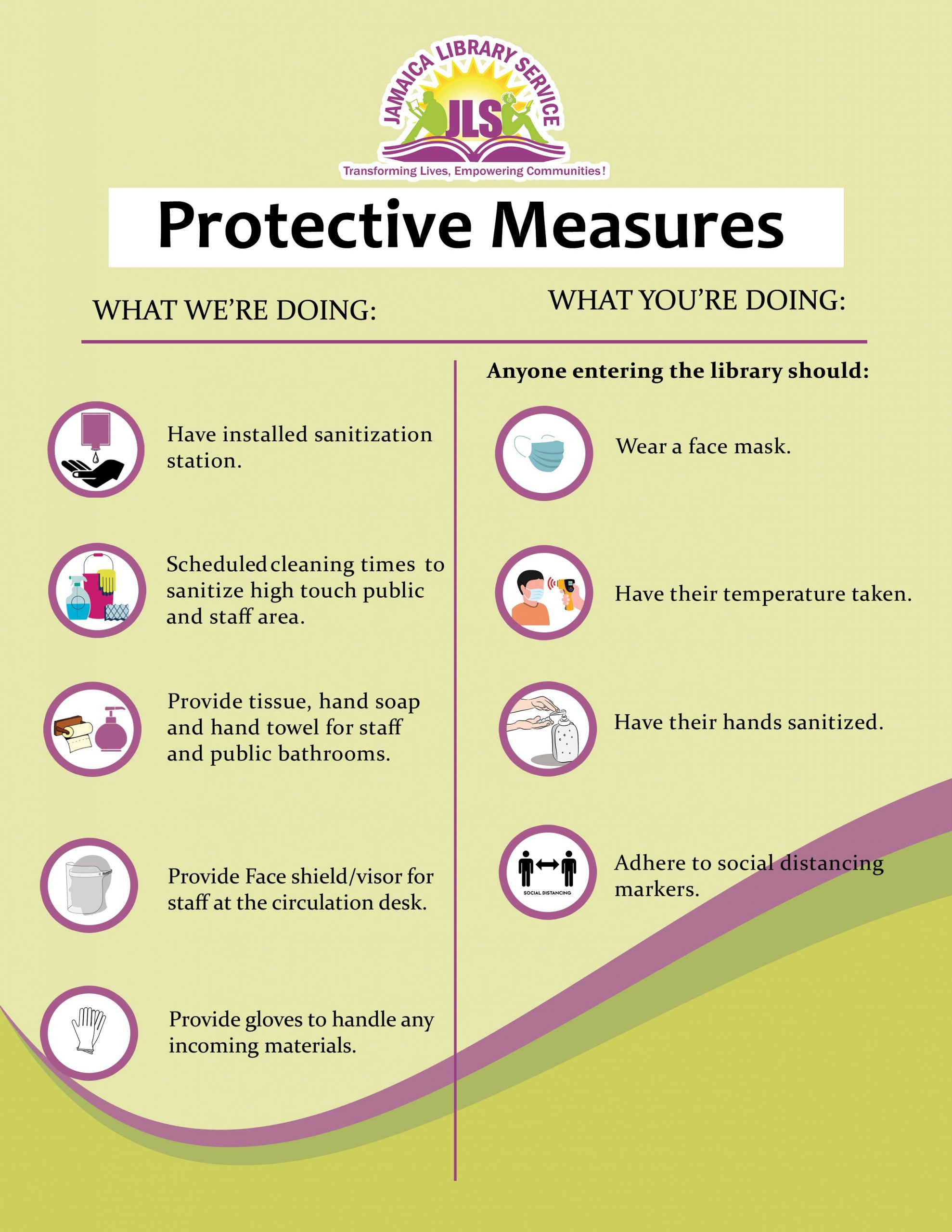Overview
Coronaviruses are a large family of viruses found in both animals and humans. They are known to cause illness ranging from the common cold to more severe diseases such as Severe Acute Respiratory Syndrome (SARS).The Ministry of Health & Wellness is currently focused on identifying individuals who have:- traveled to a country with local transmission, or
- had contact with someone diagnosed as having COVID-19, or
- developed symptoms of respiratory symptoms which could indicate COVID-19.
What are the symptoms of someone infected with coronavirus?
Common symptoms of COVID-19- Fever, runny nose, cough, shortness of breath, chest pain or sore throat
Source: Ministry of Health & Wellness
How to protect yourself from getting infected
WHO’s standard recommendations for the general public to reduce exposure to and transmission of a range of illnesses are as follows, which include hand and respiratory hygiene, and safe food practices:- Frequently clean hands by using alcohol-based hand rub or soap and water;
- When coughing and sneezing cover mouth and nose with flexed elbow or tissue – throw tissue away immediately and wash hands;
- Avoid close contact with anyone who has fever and cough;
- If you have fever, cough and difficulty breathing seek medical care early and share previous travel history with your health care provider;
- When visiting live markets in areas currently experiencing cases of novel coronavirus, avoid direct unprotected contact with live animals and surfaces in contact with animals;
- The consumption of raw or undercooked animal products should be avoided. Raw meat, milk or animal organs should be handled with care, to avoid cross-contamination with uncooked foods, as per good food safety practices.
Guide to Parenting & Family Health During COVID-19
Parents face unprecedented challenges due to COVID-19. Parenting is always a demanding job, and the pandemic raises the stakes even higher. Use these practical tips from Sprout Therapy to guide your family through the COVID-19 crisis.
Tips:- Finding Balance During a Pandemic
- The Importance of Overall Wellness for Kids & Parents
- Create Safe Mental Spaces
- Protect Your Own Health
- Special Resources for Special Families
Please contact:
- 888-ONE-LOVE(663-5683)
- 888-754-7792
- 876-542-5998
- 876-542-6007
- 876-542- 6006
- 876-542-5998
Persons may also send an email with their contact details to: covid19@moh.gov.jm or jacovid19facts@gmail.com. Also visit: Ministry of Health & Wellness , Centers for Disease Control and Prevention and World Health Organization for more information.
Resources
A Comic for COVID-19 Awareness
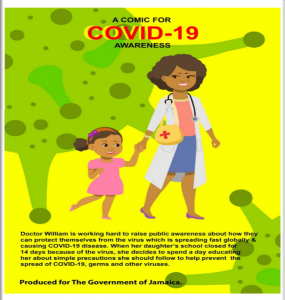
Source: Office of the Prime Minister
Self Assessment
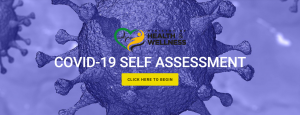
Use this self-assessment tool to help determine whether you could have COVID-19. You can complete this assessment for yourself or on behalf of someone else, if they are not able.
Frequent Handwashing A Must!
Useful Information for Older Adults
Older adults, 65 years and older, are at higher risk for severe illness.
Source: Centers for Disease Control and PreventionOther Information
Use of Cloth Face Coverings to Help Slow the Spread of COVID-19
Sew and No Sew Instructions
Sewn Cloth Face Covering
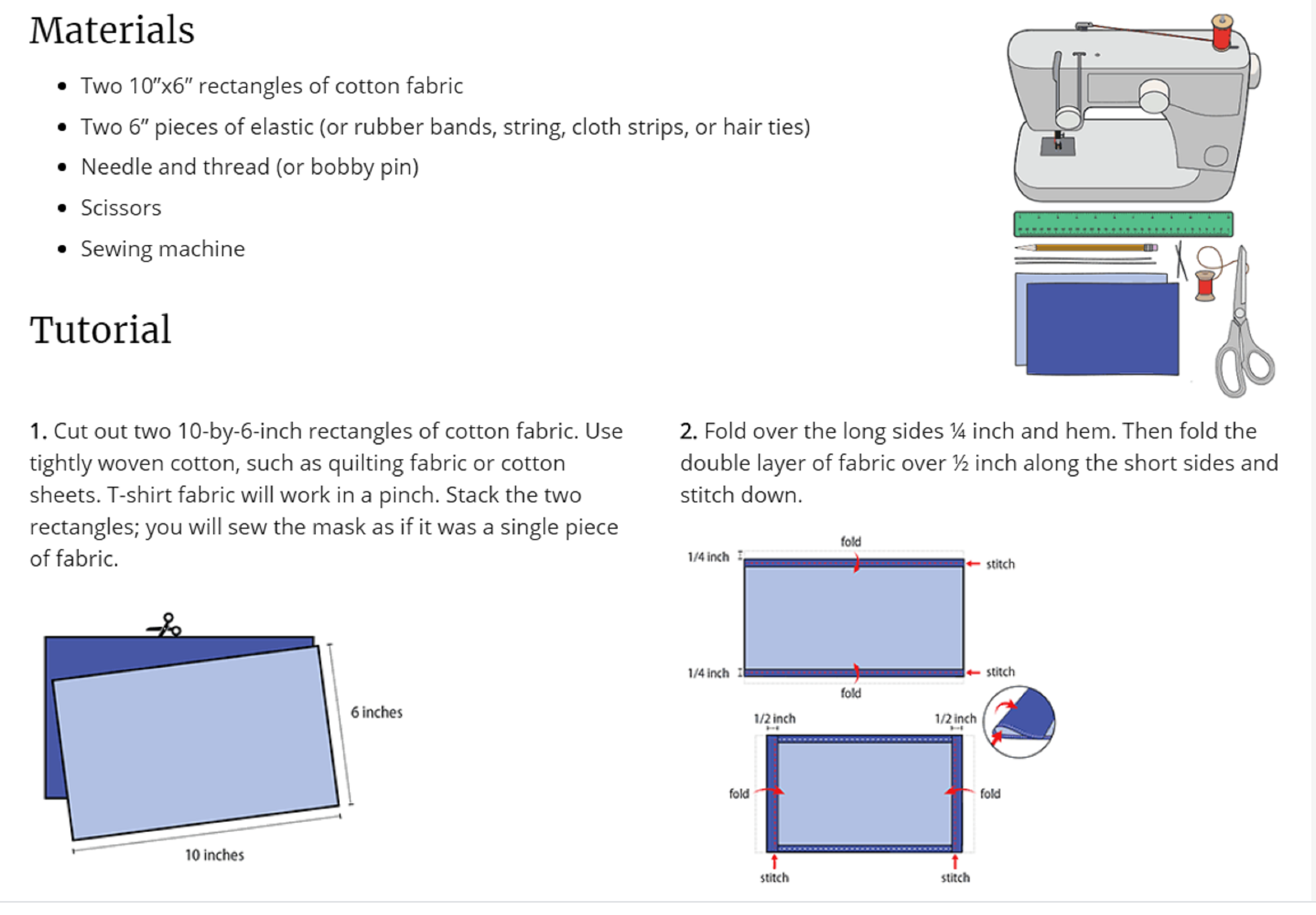 Read More...
Read More...
Source: Centers for Disease Control and Prevention
Also visit Happy DIY Home for more
DIY Face Mask – How to Make a Face Mask
DIY Face Mask Tips
- Wash your hands! You’ve probably heard these three words a million times over the past couple of months, but they’re important.
- Wash your hands well with soap and warm water before putting on your mask. Don’t touch your face.
- Masks are great because they help remind you not to touch your face while you’re out. But that also means you shouldn’t be fidgeting with the mask or taking it on and off while you’re in public.
- Wash your mask. When you get home, you should wash your mask before wearing it again. For the masks included in this guide, you can wash them by putting them through the washer with warm water.
Mask Etiquette
